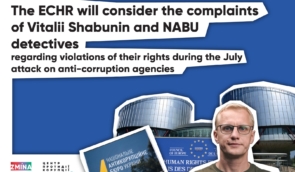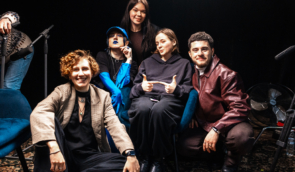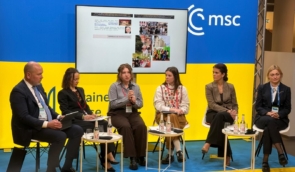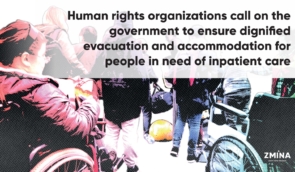Ukrainian activists in Argentina: discussing struggle, sharing strength
Ukrainian activists visited South American countries to raise awareness of the current situation in Ukraine and human rights violations caused by Russian armed aggression. ZMINA’s International Advocacy Manager Tetiana Zhukova, Coordinator of the Spain and Latin America Cooperation Program at the Transatlantic Dialogue Centre (TDC) Oleksandr Slyvchuk, and TDC Project Manager Alina Rohach started their visit in Argentina.
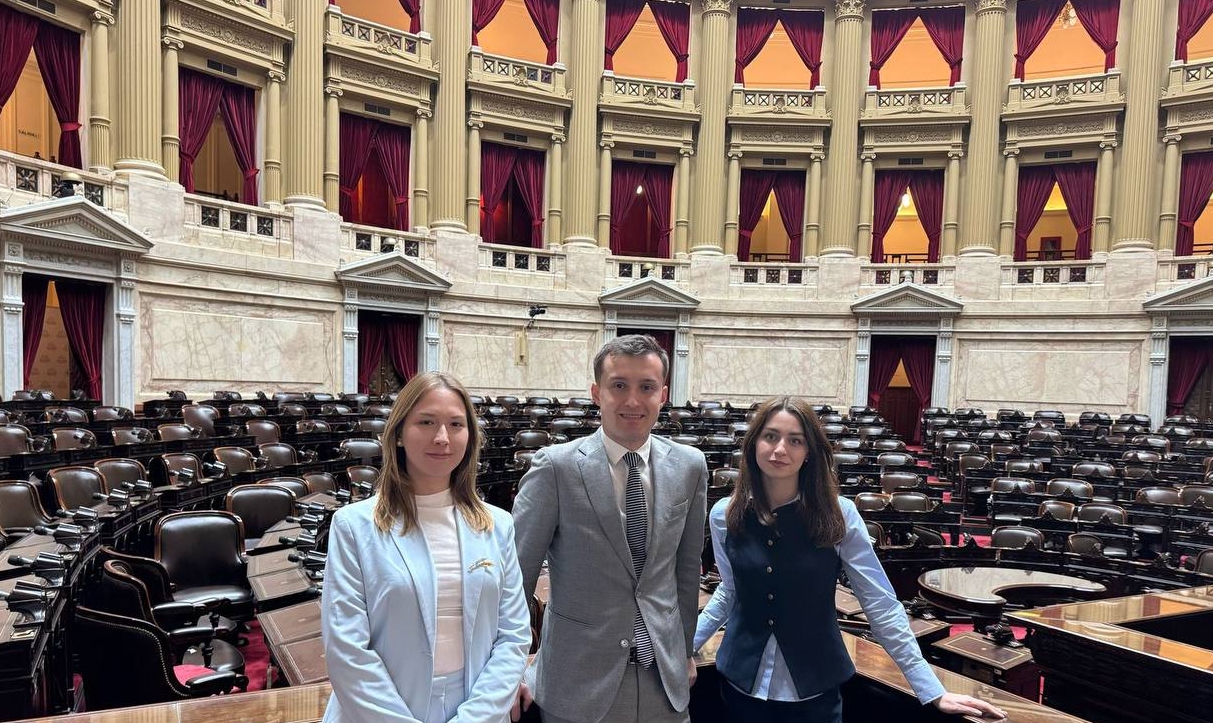 Photo: Tetiana Zhukova, Oleksandr Slyvchuk and Alina Rohach in the Argentine Congress
Photo: Tetiana Zhukova, Oleksandr Slyvchuk and Alina Rohach in the Argentine CongressArgentina’s position on Ukraine fluctuates in line with the country’s political discourse. In 2014, Argentina abstained from voting on UN General Assembly resolution 68/262, which reaffirmed Ukraine’s territorial integrity and invalidated the referendum in occupied Crimea. This decision was due to the position of the then government, which believed that supporting the resolution could set a precedent for other territorial disputes, in particular regarding the Islas Malvinas.
However, since the beginning of Russia’s full-scale invasion of Ukraine in 2022, Argentina’s position has become clearer: the government of Argentina has condemned the aggression, calling it a violation of international law, and has joined all key UN resolutions in support of Ukraine. In particular, in 2022-2024, Argentina repeatedly voted in favour of documents that confirmed Ukraine’s territorial integrity and demanded that Russia cease hostilities, withdraw its troops and compensate for the damage caused.
But in 2025, Argentina returned to a neutral position. It abstained from supporting UN General Assembly Resolution ES-11/7, which condemned Russian aggression, to align its position with the new US administration. This made the visit of ZMINA and TDC even more important.
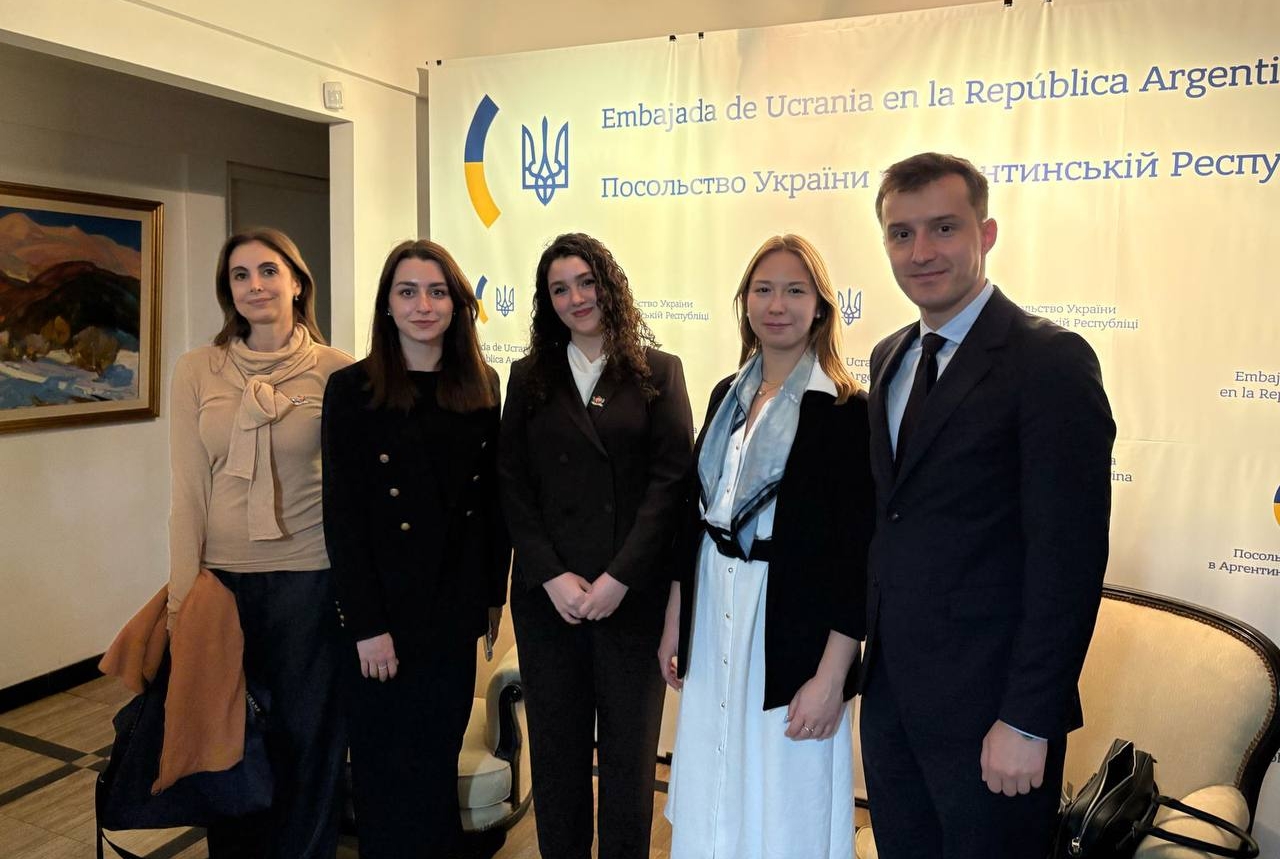
Tetiana Zhukova covered the topics of international crimes committed due to Russian aggression, which have already numbered more than 161,000 registered violations; documented cases of abductions, arbitrary detentions and torture; methodological policy of persecution in the occupied territories; as well as the importance of a just and lasting peace and the need to bring perpetrators to justice, compensate victims and return Ukrainians from detention and deportation. She also handed over lists of civilian women, the elderly and local government representatives in Russian captivity.
In Argentina, there is an emotional connection to Ukraine’s suffering, both in the case of civilian prisoners, deported children, and missing persons in the occupied territories. This is partly based on Argentina’s historical experience: during the military dictatorship of 1976-1983, between 8,000 and 30,000 people went missing in the country. The society experienced a wave of enforced disappearances, torture, persecution and extrajudicial executions, which made the topic of human rights sensitive for Argentines.
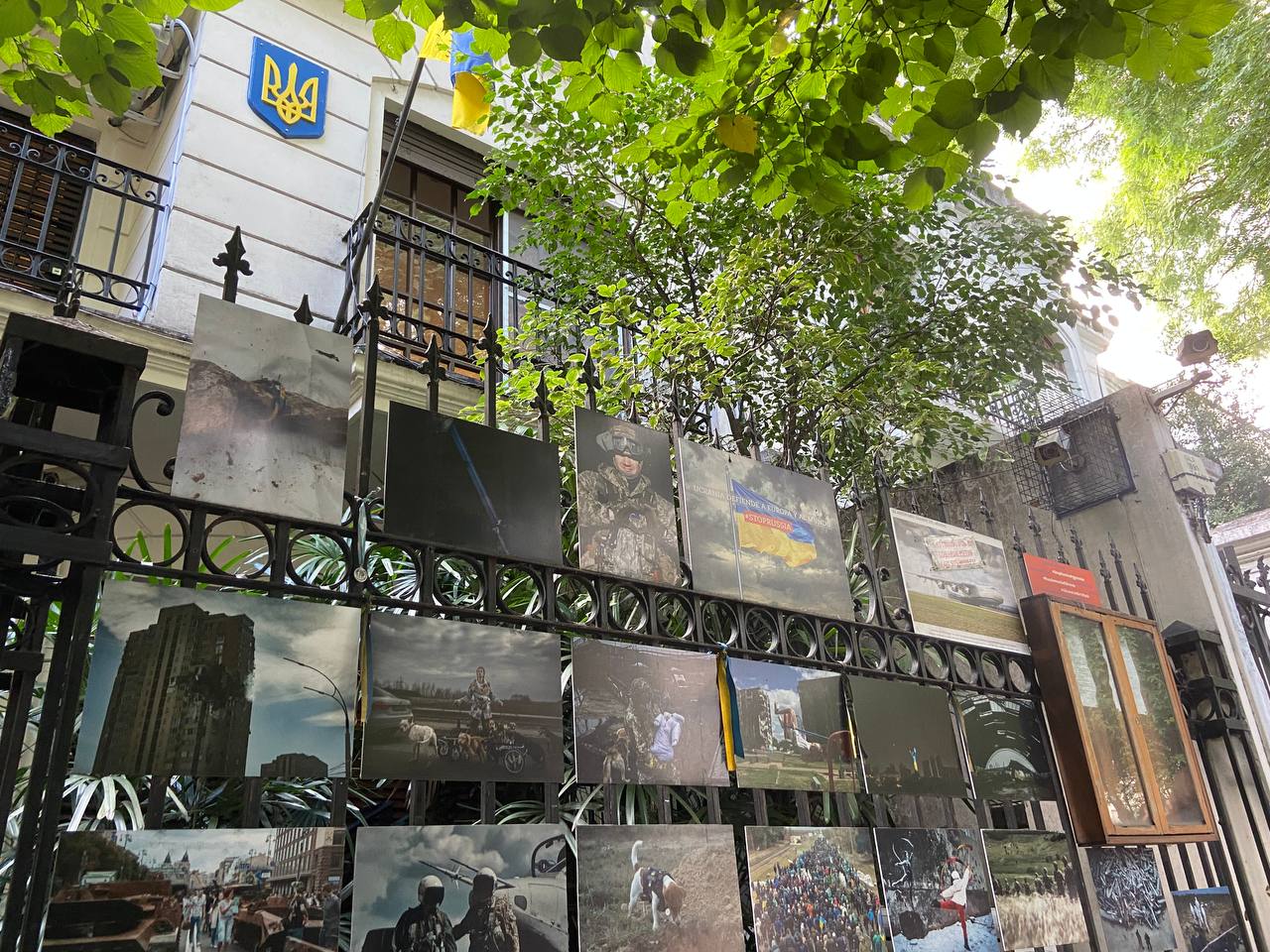 Photo: Embassy of Ukraine in Argentina
Photo: Embassy of Ukraine in ArgentinaAmbassador of Ukraine to Argentina Yurii Klymenko met with activists to exchange views on the current discourse around Russian aggression against Ukraine, the importance of countering disinformation narratives in Latin America and respect for international law.
“The meeting served as a valuable point of coordination between diplomatic efforts and civil society activities in the region, strengthening common priorities in promoting Ukraine’s cause abroad“, said the representatives of the Centre for Transatlantic Dialogue.
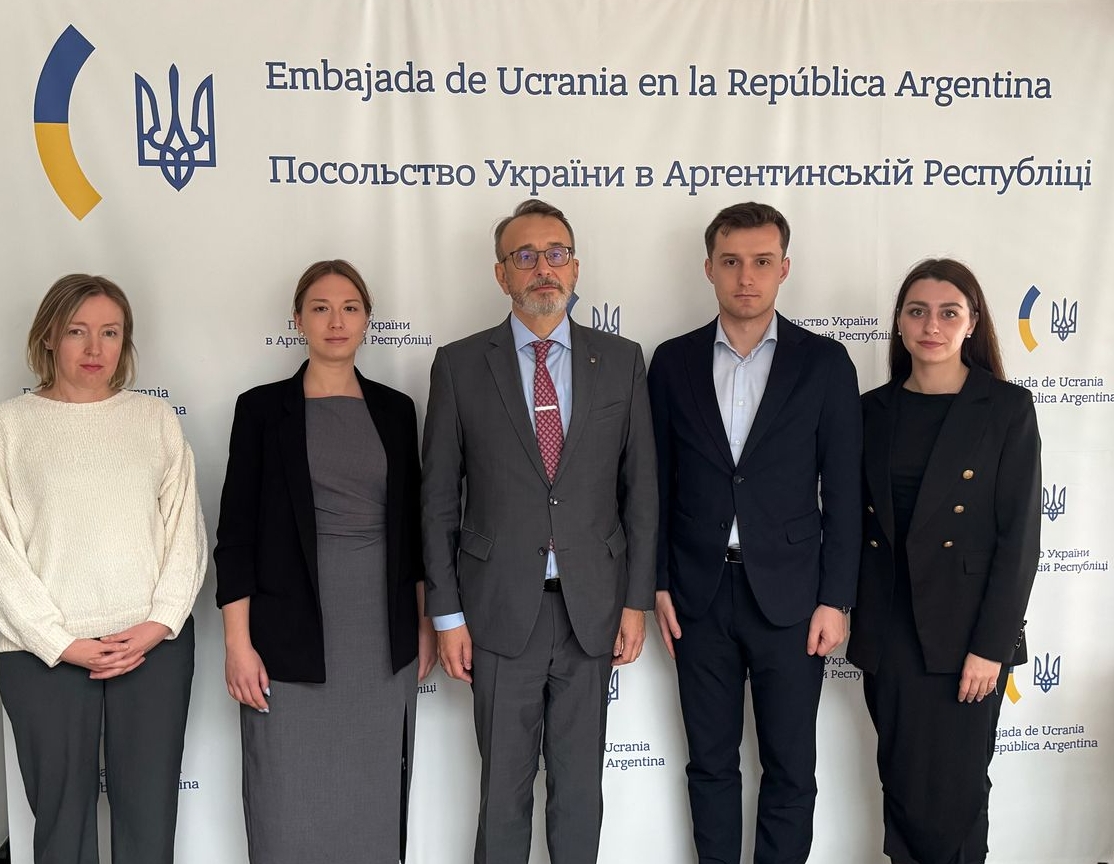 Photo: Meeting with Ambassador of Ukraine to Argentina Yurii Klymenko
Photo: Meeting with Ambassador of Ukraine to Argentina Yurii KlymenkoDuring the trip, meetings were held at the Buenos Aires City Legislature, government institutions and Congress. In particular, the Chair of the Committee on Foreign Affairs and Worship of the Chamber of Deputies Fernando Iglesias, the Chair of the Human Rights Committee of the Chamber of Deputies Sabrina Ajmechet and the Chair of the Parliamentary Friendship Group with Ukraine Damián Arabia discussed Russia’s war against Ukraine.
“We talked about the worrying war situation and the continuing Russian crimes, which include the arbitrary detention of 16,000 civilian detainees“, MP Fernando Iglesias wrote on the social media platform X following the meeting.
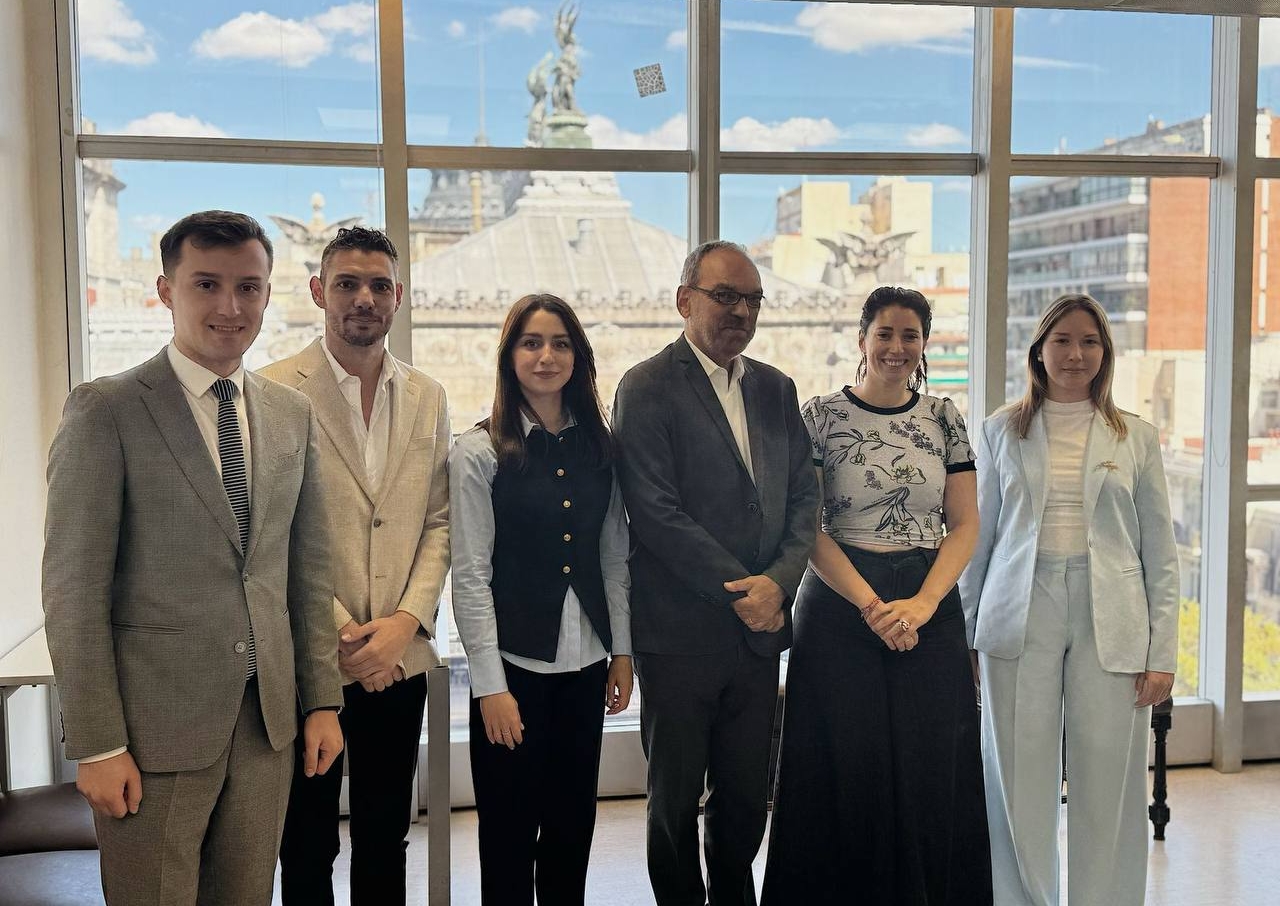 Photo: Meeting with representatives of the Argentine Chamber of Deputies Fernando Iglesias, Sabrina Ajmechet and Damián Arabia.
Photo: Meeting with representatives of the Argentine Chamber of Deputies Fernando Iglesias, Sabrina Ajmechet and Damián Arabia.In addition, activists met with the NGOs Center for the Opening and Development of Latin America (CADAL) and Kairos Global and held events with the Youth Diplomats initiative and the Argentine Council for International Relations (CARI).
The event at CARI brought together representatives of the academic, diplomatic and media communities. The session was opened by Ambassador Lila Roldán Vázquez, who was joined by Argentine international relations expert Tamara Quiroga and journalist James Gatica Matheson.
Experts spoke about the situation in Ukraine, international crimes and mechanisms for achieving justice, including the International Criminal Court, universal jurisdiction, the Register of Damages and the Special Tribunal for the crime of Russian aggression against Ukraine. The participants emphasized the importance of international solidarity and the need for Argentina to play an active role in the defence of human rights and international law.
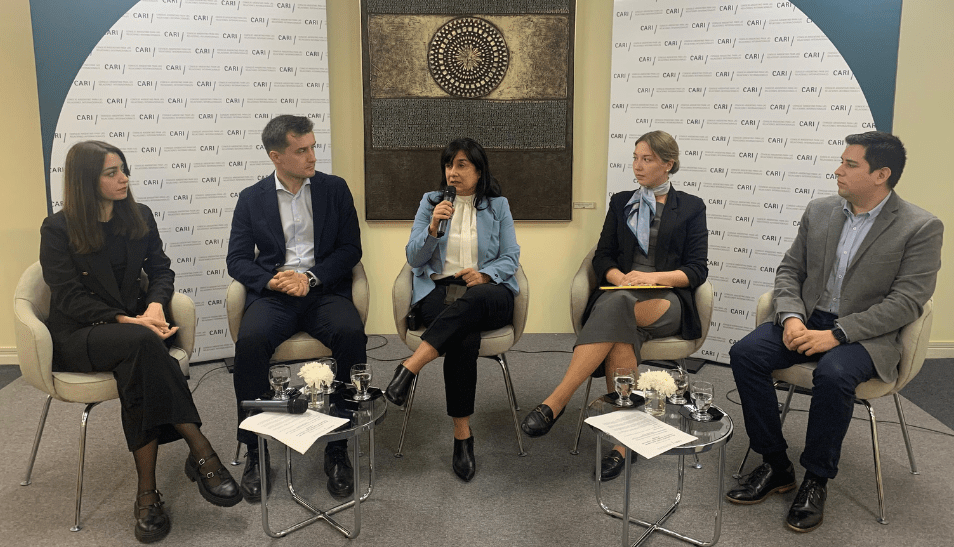 Photo: Event at the Argentine Council for International Relations (CARI)
Photo: Event at the Argentine Council for International Relations (CARI)Activists visited the Ukrainian community organisation Prosvita. The Ukrainian community in Argentina is one of the largest Ukrainian diasporas in Latin America. According to various estimates, about 300,000 people of Ukrainian descent live in Argentina. They have made a significant contribution to the life of the country and have become particularly active since the outbreak of the Russian war against Ukraine.
In addition, ZMINA and TDC gave lectures at UCEMA and Austral universities. The students showed awareness of the situation and expressed interest in finding sources of truthful information and ways to counter disinformation.
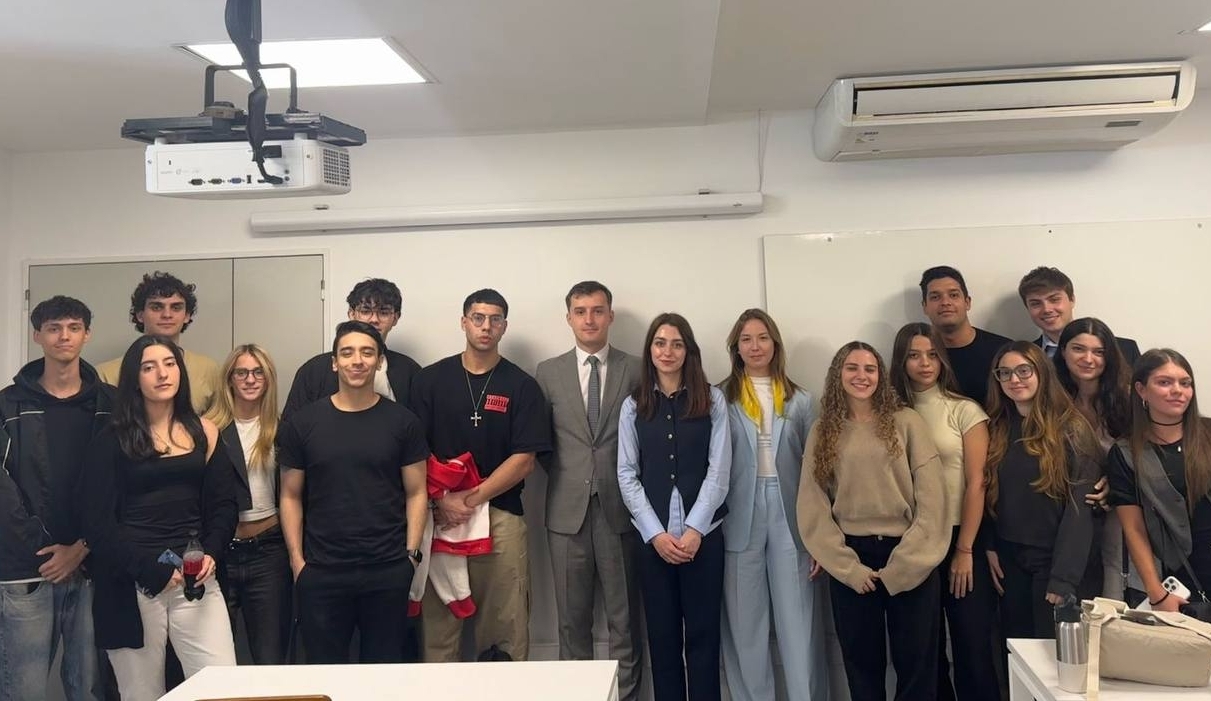 Photo: Lecture at UCEMA University
Photo: Lecture at UCEMA UniversityIn fact, Russian disinformation in Argentina is part of the Kremlin’s broader strategy to influence Latin America. Propaganda aimed at changing the perception of events in Ukraine and the world is being spread through TV channels such as RT Español, Russian telegram channels, botnets on social media, and even some journalists.
Argentina, as a country with a developed level of freedom of speech and access to information, has become an open field for such information operations. That is why Zhukova, Slyvchuk and Rohach met with representatives of several Argentine media outlets to talk about the realities of Russian aggression against Ukraine.
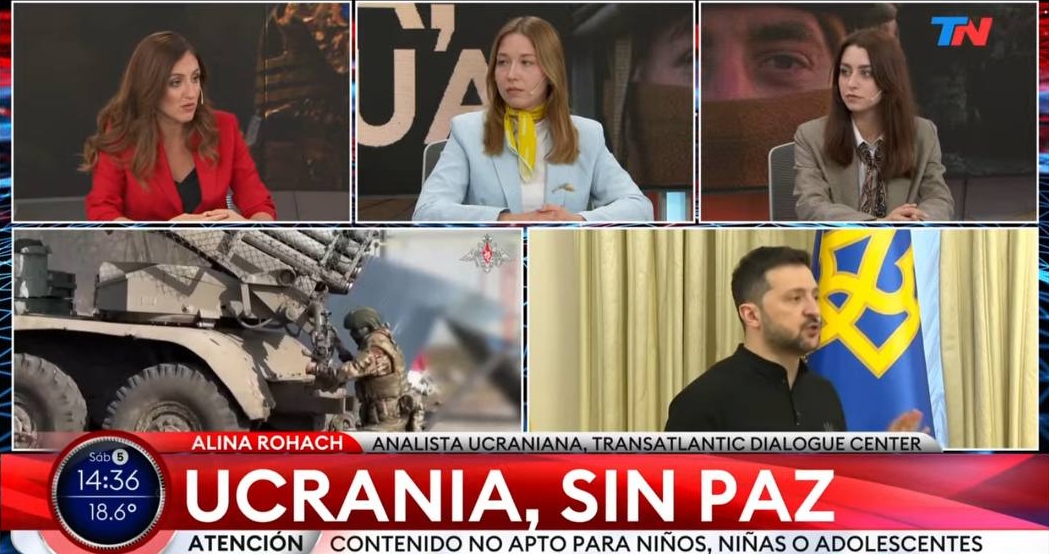 Photo: Tetiana Zhukova and Alina Rohach live on “Todo Noticias” TV channel
Photo: Tetiana Zhukova and Alina Rohach live on “Todo Noticias” TV channelAfter the restoration of democracy, Argentina has become a model in the search for truth, memory and justice. Argentina’s support and experience are extremely valuable for Ukraine, which also seeks to document international crimes, establish the fate of missing persons and ensure accountability for perpetrators and justice for all victims.
The advocacy trip was organised by the Transatlantic Dialogue Centre (TDC) with the support of the International Renaissance Foundation.
If you have found a spelling error, please, notify us by selecting that text and pressing Ctrl+Enter.

